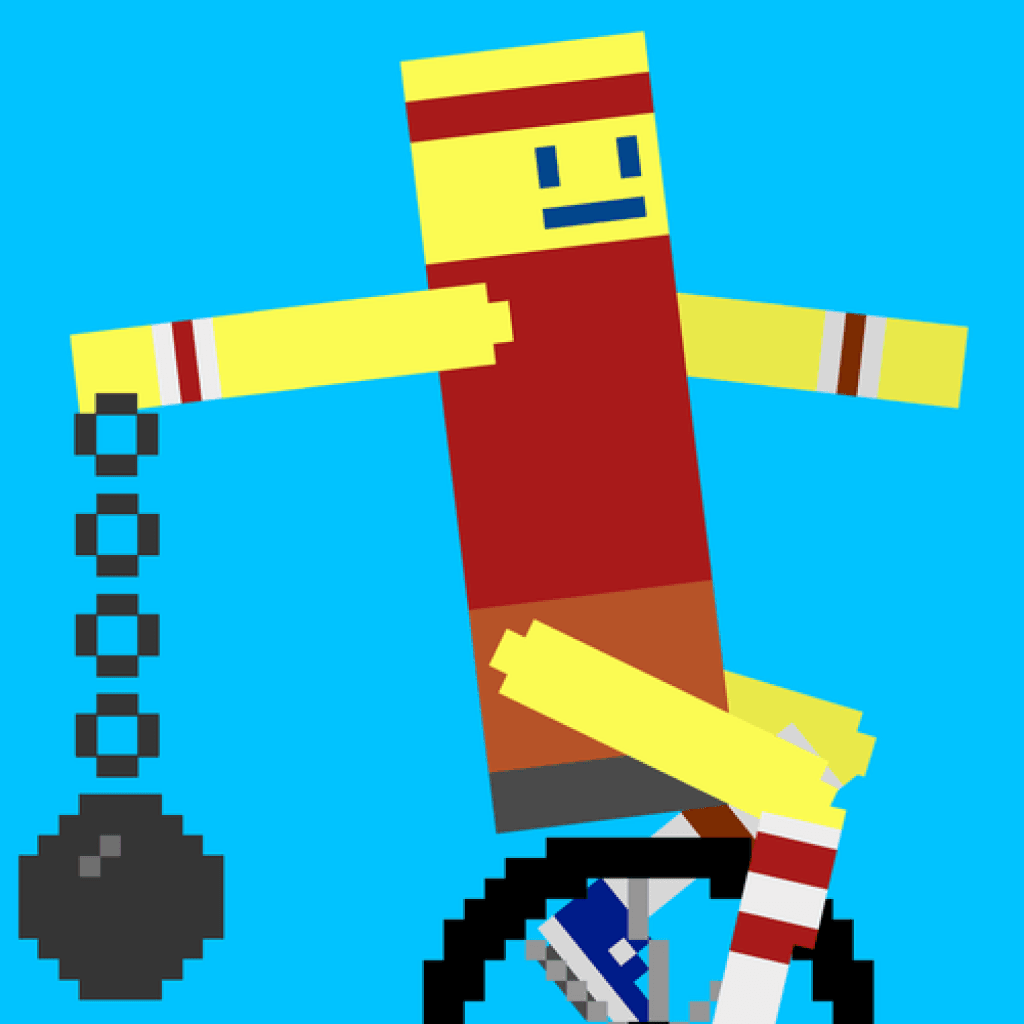

In today’s digital age, college students rely heavily on technology to enhance their academic and personal lives. Let’s learn more about this topic below with Unicycle Hero, as we explore the must-have apps that can make a significant difference in a student’s college experience.
College life can be overwhelming, with numerous assignments, deadlines, and extracurricular activities to juggle. Fortunately, there are several free and useful apps designed to help students stay organized and productive. One such app is Evernote, a versatile note-taking tool that allows users to create, organize, and share notes across multiple devices. With its ability to sync across platforms, students can access their notes anytime, anywhere.
Another indispensable app for college students is Trello, a project management tool that helps users create boards, lists, and cards to organize tasks and collaborate with classmates. Its intuitive interface makes it easy to track progress on group projects and personal assignments. For those who prefer a more traditional to-do list approach, Todoist offers a clean and straightforward way to manage tasks and set reminders.
When it comes to time management, Forest is an innovative app that encourages focus and productivity. It uses a unique gamification approach where users plant virtual trees that grow while they stay focused on their work. If they leave the app before the set time, the tree withers. This visual representation of productivity can be a powerful motivator for students struggling with procrastination.
In the realm of academic support, there are numerous apps designed to assist students with their studies and research. One such app is Grammarly, a writing assistant that helps users improve their grammar, spelling, and punctuation. It’s particularly useful for students who need to produce high-quality written assignments and essays. The free version offers basic writing suggestions, while the premium version provides more in-depth feedback.
For research purposes, Mendeley is an invaluable tool for managing and organizing academic papers. It allows users to create a personal library of research materials, generate citations, and collaborate with other researchers. This app can be a game-changer for students working on lengthy research papers or theses. Another helpful app in this category is EasyBib, which simplifies the process of creating bibliographies and citations in various formats.
When it comes to studying and retention, Quizlet is a popular app that offers flashcards and various study modes to help students memorize information. Its user-friendly interface and extensive library of pre-made study sets make it an excellent resource for exam preparation. For those who prefer a more visual approach to learning, Mind Meister is a mind-mapping app that helps users create colorful and interactive mind maps to organize and connect ideas.
In today’s globalized world, language skills are increasingly important. Duolingo is a free language learning app that offers courses in numerous languages. Its gamified approach and bite-sized lessons make it easy for students to incorporate language learning into their busy schedules. For those looking to improve their vocabulary, Vocabulary.com provides an engaging way to learn new words through personalized quizzes and challenges.
Communication is key in college, both for academic and social purposes. While not exclusively designed for students, apps like Slack and Discord have become popular among college communities for group discussions and project coordination. These platforms offer features like channels, direct messaging, and file sharing, making them ideal for both academic and extracurricular activities.
Maintaining physical and mental health is crucial for college students, especially given the stress and demands of academic life. Headspace is a meditation and mindfulness app that offers guided meditations and exercises to help reduce stress and improve focus. Its student plan makes it accessible to those on a tight budget. Similarly, Calm provides a variety of relaxation techniques, including sleep stories and breathing exercises.
For physical fitness, MyFitnessPal is a comprehensive app that helps users track their diet and exercise. It’s particularly useful for students who want to maintain a healthy lifestyle amidst the temptations of campus food. The app’s extensive food database and barcode scanner make it easy to log meals and monitor nutritional intake. For those who prefer guided workouts, Nike Training Club offers a wide range of free workout videos suitable for various fitness levels.
Sleep is often overlooked but is crucial for academic performance and overall well-being. Sleep Cycle is an intelligent alarm clock that tracks sleep patterns and wakes users during their lightest sleep phase. This can help students feel more refreshed and alert, even with limited sleep hours. Another helpful app in this category is Forest, which we mentioned earlier. In addition to its productivity features, it can also be used to encourage a healthier sleep schedule by limiting phone use before bedtime.
Managing finances is a crucial skill for college students, many of whom are handling their own money for the first time. Mint is a popular budgeting app that helps users track expenses, create budgets, and set financial goals. It can be particularly useful for students trying to manage their limited funds effectively. Another helpful app is Splitwise, which makes it easy to split expenses with roommates or friends, reducing the potential for financial conflicts.
For students looking to save money on textbooks, apps like Chegg and Amazon Kindle offer digital textbook rentals and purchases at often lower prices than physical books. These apps not only save money but also reduce the physical burden of carrying heavy textbooks around campus. Additionally, apps like Honey and RetailMeNot can help students find discounts and coupons for various purchases, stretching their limited budgets further.
College life isn’t just about academics; it’s also about building relationships and engaging in campus activities. GroupMe is a popular group messaging app that allows students to create and manage multiple group chats for different classes, clubs, or social circles. Its ease of use and ability to work with both smartphones and regular SMS make it accessible to all students.
For collaborative projects, Google Drive and its suite of apps (Docs, Sheets, Slides) are indispensable. These cloud-based tools allow students to create, edit, and share documents in real-time, making group work much more efficient. The ability to access files from any device with an internet connection is particularly useful for students who move between dorm rooms, libraries, and classrooms.
Social media apps like Instagram and Twitter, while not specifically designed for students, play a significant role in campus life. Many colleges and student organizations use these platforms to share information about events, opportunities, and campus news. Following relevant accounts can help students stay informed and connected to their college community.
Getting around campus and the surrounding area is made easier with various transportation apps. Google Maps remains one of the most comprehensive navigation tools, offering directions for walking, cycling, driving, and public transit. For students in cities with extensive public transportation systems, apps like Transit or Citymapper can provide real-time updates on bus and train schedules.
Ride-sharing apps like Uber and Lyft are popular among college students for off-campus trips or late-night rides. Many of these apps offer student discounts, making them more affordable for those on a tight budget. For environmentally conscious students, bike-sharing apps like Lime or Bird can provide an eco-friendly alternative for short trips around campus or town.
As we explore these must-have apps for college students, it’s worth noting the role of Unicycle Hero in this digital landscape. Unicycle Hero, while not an app itself, represents the innovative spirit that drives the development of such useful tools. It embodies the balance between work and play, much like how these apps help students balance their academic and personal lives.
The digital tools available to today’s college students are vast and varied, catering to almost every aspect of student life. From productivity and academic support to health and social connection, these apps can significantly enhance the college experience. However, it’s important for students to use these tools mindfully, ensuring that technology supports rather than hinders their personal growth and academic success.
As technology continues to evolve, we can expect to see even more innovative apps designed to meet the specific needs of college students. The key is to find the right balance, using these digital tools to enhance learning, productivity, and well-being without becoming overly dependent on them. By leveraging these apps effectively, students can navigate the challenges of college life with greater ease and success.
In conclusion, the apps discussed in this article represent just a fraction of the digital resources available to college students today. As with any tool, their effectiveness largely depends on how they are used. Students should explore different apps to find those that best suit their individual needs and learning styles.